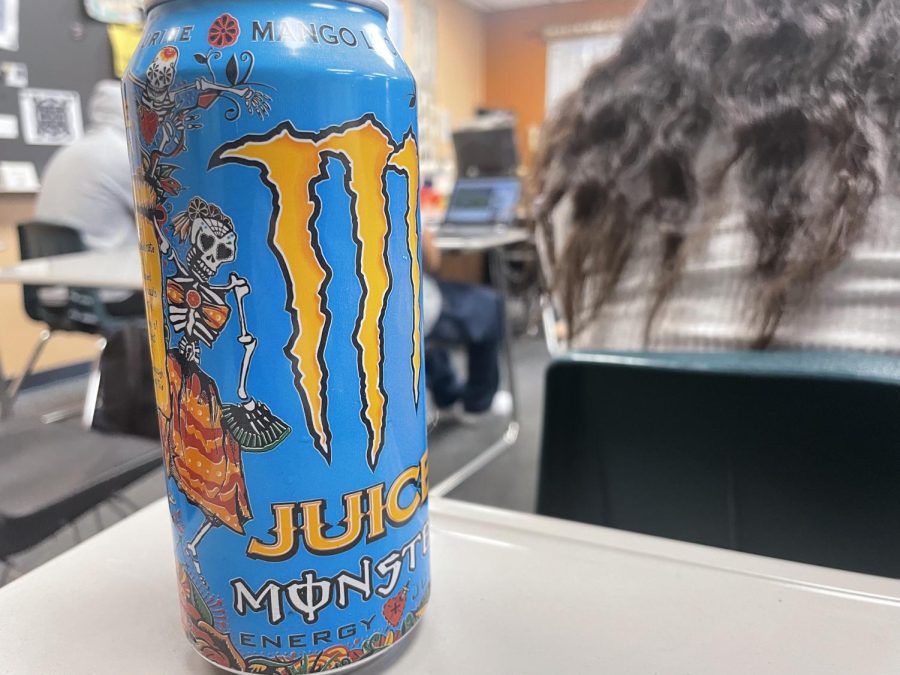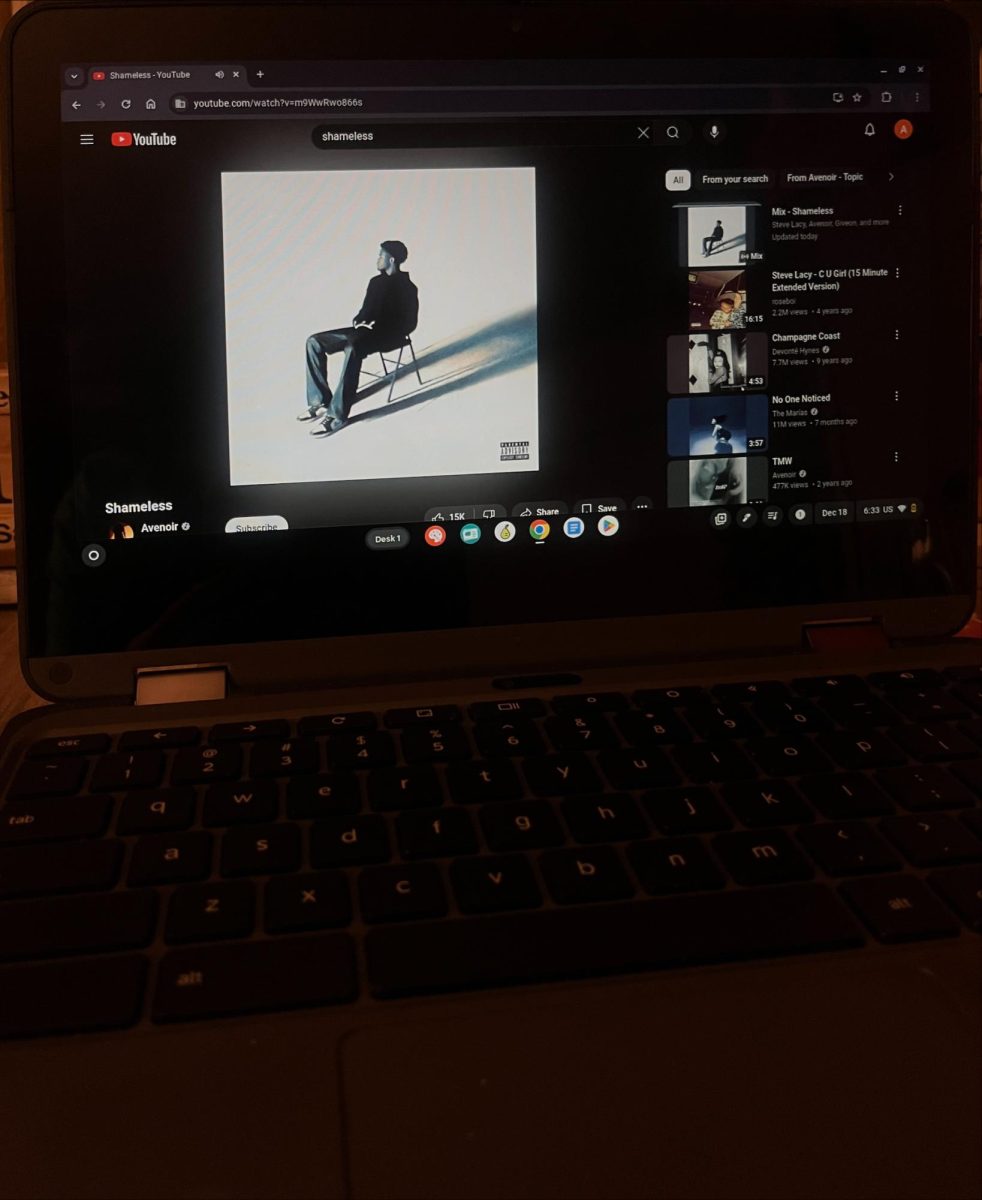Opinion: How caffeine affects teens
Some students have energy drinks to keep them awake in the morning.
October 20, 2022
Waking up early in the morning is an everyday norm for many students. The blaring alarms and the droning lectures leave many teenagers feeling drowsy and tired before their first period is even over. Many freshmen and seniors alike search for a solution, often reaching toward an energy drink or a cup of coffee. What they do not take into consideration are the adverse effects that may occur when having large amounts of caffeine as an adolescent.
Many people are unaware of the fact that caffeine is considered a drug. The World Health Organization recognizes caffeine as an addictive substance, and some students even report feeling withdrawal symptoms after a period of not consuming caffeine. Though it is highly addictive, many dismiss caffeine as a part of normal everyday life since you see it everywhere. Coffee, sodas, and even chocolate are products that contain caffeine in significant amounts. Additionally, when you walk onto a school campus, there are often a large number of students carrying around a cup of coffee or some other caffeinated beverage. Caffeine is so normalized that nobody bats an eye when seeing an array of coffee cups and energy drinks on classroom desks. With caffeine being seen so often in schools, wondering about the health effects that it may have is a valid concern for both teens and adults alike.
When a teen consumes caffeine regularly, there are many consequences that may occur. Studies show that when an adolescent has access to caffeine from a young age, it can stunt the growth of the brain. Additionally, caffeine causes your brain to release dopamine, which is the same process that occurs in drug addiction. Caffeine also affects a teen’s ability to sleep. Every 10 milligrams of caffeine that a teenager consumes affects their chances of getting a good night’s rest, which can end up causing more of a dependency on caffeine as time goes on. This fact is concerning because most caffeinated beverages contain approximately 30 to 250 milligrams of caffeine. All of these statistics have clear research and evidence that caffeine is not good for teens, and is also readily available for anyone to read. There is also a risk of overdosing if too much caffeine is being consumed. If anyone consumes too much caffeine, there is a possibility that they may overdose. Therefore, it is a given that teens have a higher risk of overdosing if they consume even less caffeine than the normal adult. So why do parents still allow their teens to walk out the door with a cup of coffee or an energy drink when it can do so much harm?
Schools in the US typically start their day at around 7:30 to 8:00 a.m. Consequently, teenagers are often tired from waking up early in the mornings, and tend to reach for something to help them stay awake. The most enticing option seems to be the colorfully decorated cans of energy drinks. These drinks tend to be marketed toward younger audiences, with colorful illustrations that teens would gravitate towards. Additionally, many energy drink brands participate in sports events that teens would be interested in. What is most concerning about this is that energy drinks tend to contain the most caffeine compared to other beverages by a long shot. There are also the many coffee shops that consistently trend on social media and advertise toward adolescents. Many companies use marketing tactics toward specific audiences, and in this instance, their particular targeted group is clear.
All of the evidence points toward caffeine not being a great thing for young people to have. The idea of young minds being affected by an addictive substance is a scary idea to think about, especially with all new forms of caffeine being put on the market every day. However, there is also the very real idea that some teens would be less effective in learning at school without it. The reality is that there is not much we can do about the prevalence of caffeine among teens due to the lack of regulations by the FDA and the acceptance of this substance in many places. Though the mornings may be exhausting to endure, the next time you pick up that cup of coffee or energy drink, think about the consequences it may have on your health.







